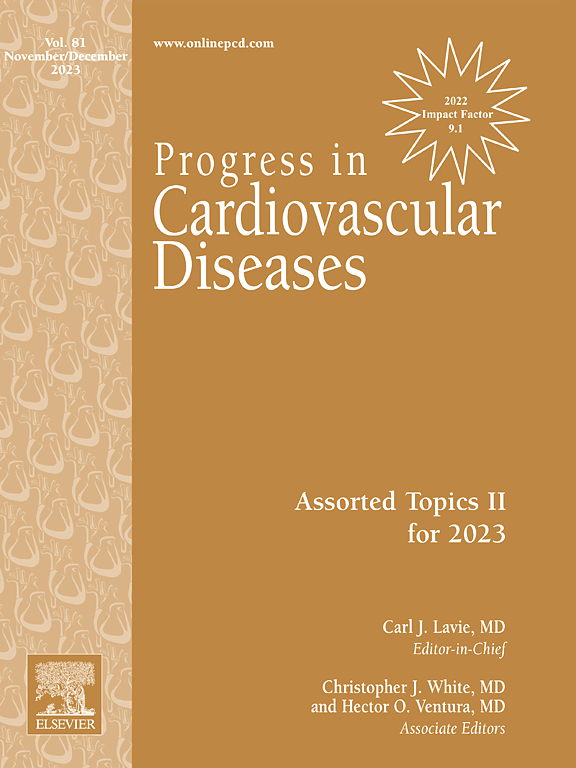Management of ventricular tachycardia in patients with advanced heart failure
IF 7.6
2区 医学
Q1 CARDIAC & CARDIOVASCULAR SYSTEMS
引用次数: 0
Abstract
Ventricular arrhythmias (VAs) are highly prevalent in patients with advanced heart failure (AHF), a condition characterized by severe signs and symptoms despite conventional HF therapy. The management of VAs in this setting remains challenging. Antiarrhythmic drug therapy options are limited and only amiodarone has demonstrated effectiveness in suppressing VA, albeit this agent is associated with a substantial risk of cardiac and noncardiac adverse effects. Catheter ablation is effective for the reduction of VAs in patients with AHF. Identification of patients at high risk for periprocedural hemodynamic decompensation has important implications in terms of procedural planning and improving patient safety and procedural outcomes. Herein, we review the current state of scientific evidence for the management of VA in patients with AHF.
晚期心力衰竭患者室性心动过速的处理。
室性心律失常(VAs)在晚期心力衰竭(AHF)患者中非常普遍,尽管传统的心衰治疗,但这种疾病的特征是严重的体征和症状。在这种情况下,VAs的管理仍然具有挑战性。抗心律失常药物治疗的选择是有限的,只有胺碘酮被证明对抑制室性心律失常有效,尽管这种药物与心脏和非心脏不良反应的重大风险相关。导管消融对于降低AHF患者的VAs是有效的。识别术中血流动力学失代偿高危患者对手术计划、提高患者安全和手术结果具有重要意义。在此,我们回顾了AHF患者VA管理的科学证据的现状。
本文章由计算机程序翻译,如有差异,请以英文原文为准。
求助全文
约1分钟内获得全文
求助全文
来源期刊

Progress in cardiovascular diseases
医学-心血管系统
CiteScore
10.90
自引率
6.60%
发文量
98
审稿时长
7 days
期刊介绍:
Progress in Cardiovascular Diseases provides comprehensive coverage of a single topic related to heart and circulatory disorders in each issue. Some issues include special articles, definitive reviews that capture the state of the art in the management of particular clinical problems in cardiology.
 求助内容:
求助内容: 应助结果提醒方式:
应助结果提醒方式:


